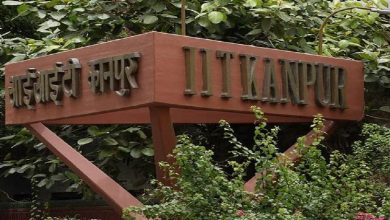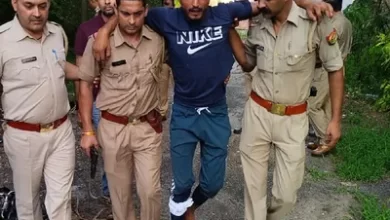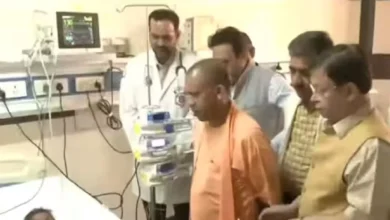The Shadow of Pandemic is Affecting Children’s Mental Health & Wellbeing, reveals Save the Children Report

New Delhi. November 27, 2020: Save the Children’s latest report ‘A Generation at Stake: Protecting India’s Children from the impact of COVID 19’reveals that the vulnerable children are most stressed about the uncertainties that the pandemic has brought in their lives.
The report findings paint a stark picture for children in India, both urban and rural. Three out of every four children reported increase in negative feelings since the outbreak of the pandemic, many citing reasons like ambiguity over getting back to school, no contacts with teachers or friends, loss of livelihoods in the family leading to insecurities and violence in household relationships.
Releasing the report with an agenda for action in the post COVID-19 world, Sudarshan Suchi, CEO, Save the Children said, “Our findings show that the economic shocks endured during the pandemic have had a correlation with increase in violence against both adults and children, as well as increase in domestic chores and caring duties – particularly for girls – and reduced mental health and wellbeing. The most vulnerable children are becoming the biggest victims of its social and economic impacts. It is agonizing to see that COVID-19 is likely to exacerbate existing deprivation from both a monetary and a multidimensional poverty angle, hugely impacting the mental health and psychological well-being of children.”
HIGHLIGHTS:
- 1 out of 10 children said that they would not be returning to school or do not know whether they would return to school once they reopen
- More than half of all children reported having no contact from teachers at all since the closure of schools
- 3 out of every 4 children in the programme participants group reported increase in negative feelings since the outbreak of the pandemic
- 11% children in the programme participants group and 17% children in the migrants’ group reported violence in their homes during the pandemic
- 4 out of every 5 children in the programme participants group reported facing obstacles to learning
- Among migrants, 91% households reported loss of income
- 60% households reported lack of money to pay for food
- Two-thirds of children had access to only one or two types of learning material
- 35% from the programme participants group reported facing barriers in accessing healthcare, medication or menstrual products
- More than two-fifth (44%) of the households in the programme participants group and almost half (47%) of the migrants’ group reported not having access to preventive supplies like masks
- In the programme participants group, 7% respondents also cited challenges in securing water delivery while 27% of the migrants reported so.
- 37% in the programme participants group who lost their income due to COVID-19 reported that they experienced difficulties in paying for healthcare or medical supplies. Among migrants, more than half the respondents shared the same challenge.
Children’s responses collected through this study provided an opportunity to them to share their worries and concerns that they were grappling with during this time. Insights received from them reveal the inter-related dimensions of the impact of COVID-19 on their families, communities and service delivery mechanisms.
Children called on the government to ensure access to education during school closures, social protection support for struggling families, steps to ensure their protection including from all forms of violence.
COVID-19 has led to loss of learning and caused stress among the relatively poor children who have limited access to digital learning or learning material. Thus, it is recommended to provide psycho-social support to children and help them catch up with learning levels as well as ensure continuity of education even after schools reopen.
Also, social protection programmes / schemes (including schemes announced during the pandemic) need to be made available to eligible families and children. Special efforts are required for the migrant families and their children to ensure their access to entitlements irrespective of native place or place of work.
About the Study:
Save the Children launched a global research study to generate evidence on the impact of the COVID-19 pandemic on children, and identify children’s and their family’s needs during these times. Overall, 46 countries, including India, participated in this research. India contributed a substantial sample from 11 states and 2 UTs (Delhi & J&K) to the global study covering 1,598 parents and 989 children (aged between 11-17 years). The sample from India comprised of marginalised and vulnerable children and their families. The research sampled two distinct population groups –
- Save the Children programme participants: Data, including surveys of families and children, was collected from the programme participants in 13 Save the Children intervention states, whose contact details were available with the programme staff. These states were selected across regions, including east, west, north, south and north-east. States included Bihar, Jharkhand, West Bengal, Assam, Rajasthan, Madhya Pradesh, Maharashtra, Uttar Pradesh, Delhi, Jammu & Kashmir, Odisha, Karnataka and Telangana.
- Migrants: Sample from the target group of migrants were taken from Jharkhand. Respondents included parents and children who were migrating to or had already migrated back to their home state of Jharkhand due to COVID-19. Total sample for this target group included 606 parents and 235 children aged between 11-17years.
About: Save the Children
Works across 12 states of India and in 120 countries, on issues related to education, health, and protection and humanitarian/DRR needs of children, especially for those who are the most deprived and marginalized.
अन्य खबरों के लिए हमसे फेसबुक पर जुड़ें। आप हमें ट्विटर पर फ़ॉलो कर सकते हैं. हमारे यूट्यूब चैनल को भी सब्सक्राइब कर सकते हैं।
किसी भी प्रकार के कवरेज के लिए संपर्क AdeventMedia: 9336666601





